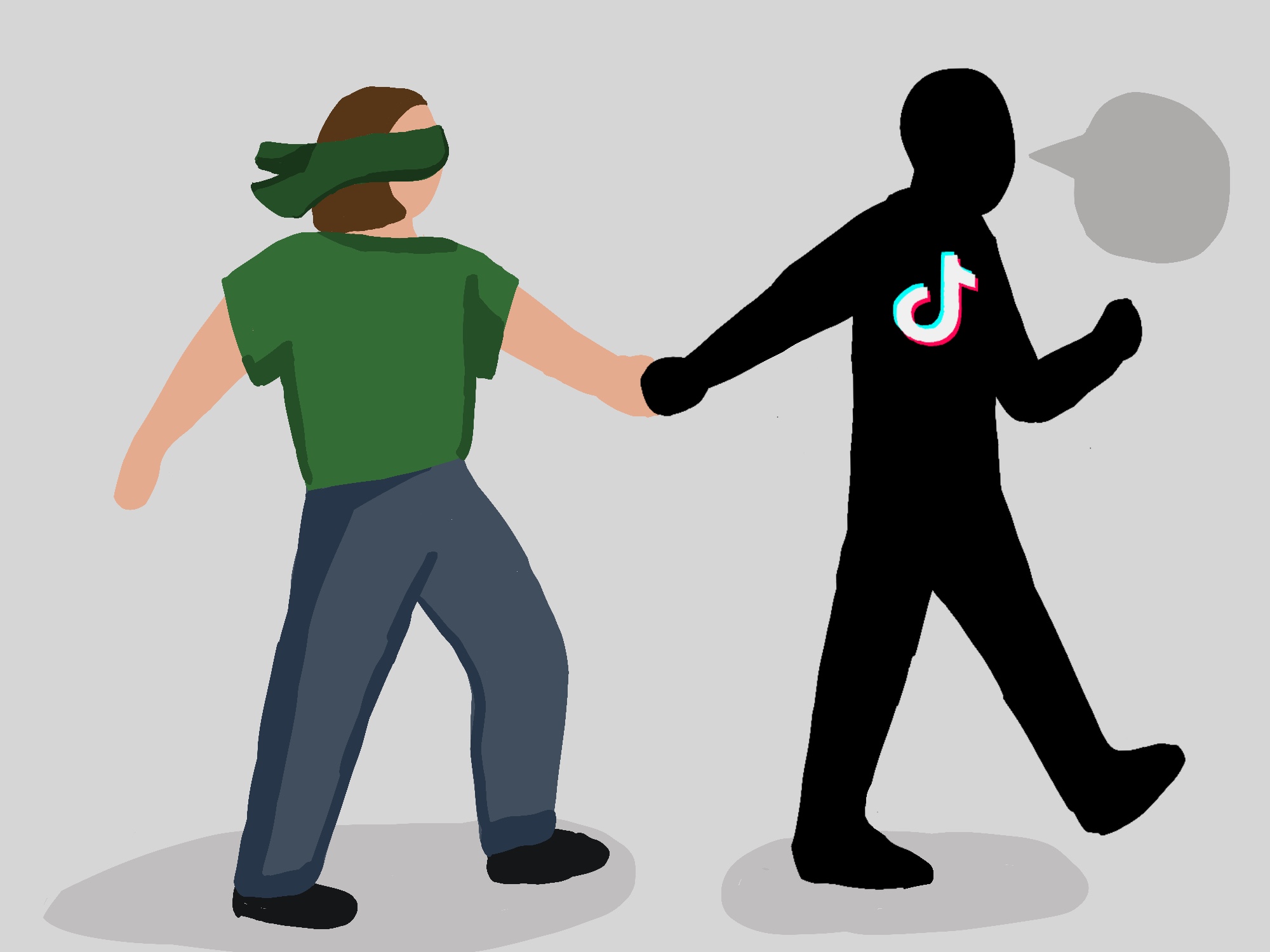Remember when YouTubers were scooping out EOS lip balms to put chocolate in them for a DIY craft? Or melting crayons to make lipstick?

As children, many members of Gen Z spent hours watching our favorite accounts on Youtube — trying to emulate the way they spoke, and follow their tutorials for crafts. They were our biggest role models, even though we didn’t actually know them at all.
Today, we continue the same pattern by following our favorite social media influencers. But instead of crafts, we copy their workouts and diets — still with no other information about them. As we grow up, the influencers we try to emulate have a greater influence on the way we live.
Blindly following popular influencers has become a growing problem among members of Gen Z.
Before the short-lived TikTok ban that was meant to take full effect Jan. 19, users’ For You pages were flooded with confessions from influencers.
Some of the most mind-blowing confessions have dramatically changed how viewers see their favorite social media stars, and cost them a drop in followers once the app returned.
Influencer Lexi Hidalgo first blew up on TikTok for her workout routines and “coffee talks.” In her confession, she revealed to her fans that she rarely did the workouts when she filmed and never drank the coffee she made.
Her fans grew angry at her. She had let them think she had a perfect and healthy life, when in reality, she was faking it all for the cameras.
My personal favorite confession was from Charli D’Amelio. In 2022, once she had millions of followers, a video of her using some kind of smoking device was leaked onto the internet. Because she was young and beloved, her fans were quick to jump to conclusions about it being an “anxiety pen.”
On Jan. 18 — in a video that was quickly deleted — she told her followers the truth. “While we are here admitting things, and TikTok is going away, it wasn’t an anxiety pen. I still to this day don’t know who came up with that but, I’m sorry,” D’Amelio said.
D’Amelio took back the comment on Jan. 20, when TikTok was once again live, hoping fans would forget. Although she lied, she is still loved by her loyal fans.
So, what does this mean for all of us? Should we stop trusting influencers?
Yes.
It can be hard to understand why people are so quick to trust their favorite influencers. Social media is a platform for people to share highlights of their lives for entertainment — we seem to have forgotten that we only see one side of stories.
Young adults are eager for role models to look up to. But before picking who to follow, remember that these public social media personalities have private lives as well.
As fans, there was no way of telling if Lexi Hidalgo was actually the girl we thought she was, just like there was no way of knowing what kind of device D’Amelio was using.
All of this goes to say: we never know the full story — regardless of who or what the story is about.
We are constantly fed information through the internet and on social media. Without knowing if the information is true, we spread rumors like wildfires based on assumptions.
It is important to do research and use critical thinking to determine if what we see online is true. We must get better at educating ourselves and taking all sides into perspective.
Take the time to learn more about the people who influence you. How do they act in public? Who are they friends with? What kind of scandals have they been involved in?
Thinking about the implications of making assumptions without doing research and knowing the facts is terrifying.
I hope these events open the eyes of Gen Z and inspire more of us to dig a little deeper.





















































































































lululu • Feb 13, 2025 at 5:21 am
Very nice article, totally whyat I wanted to find.